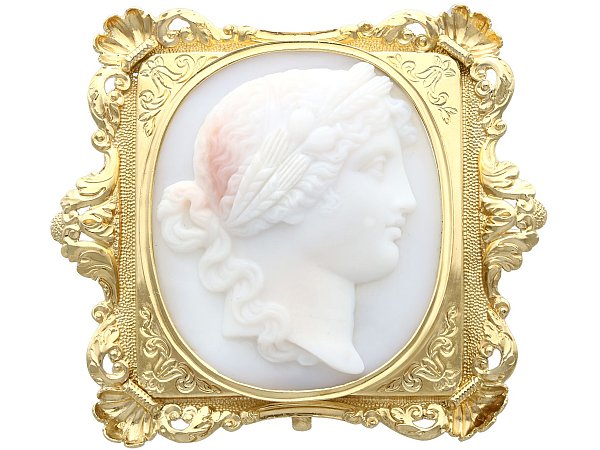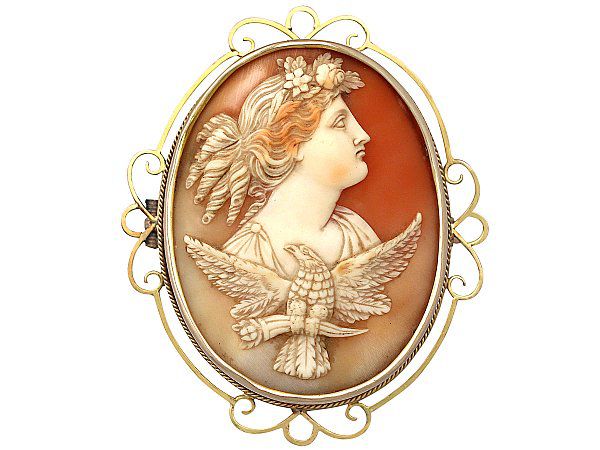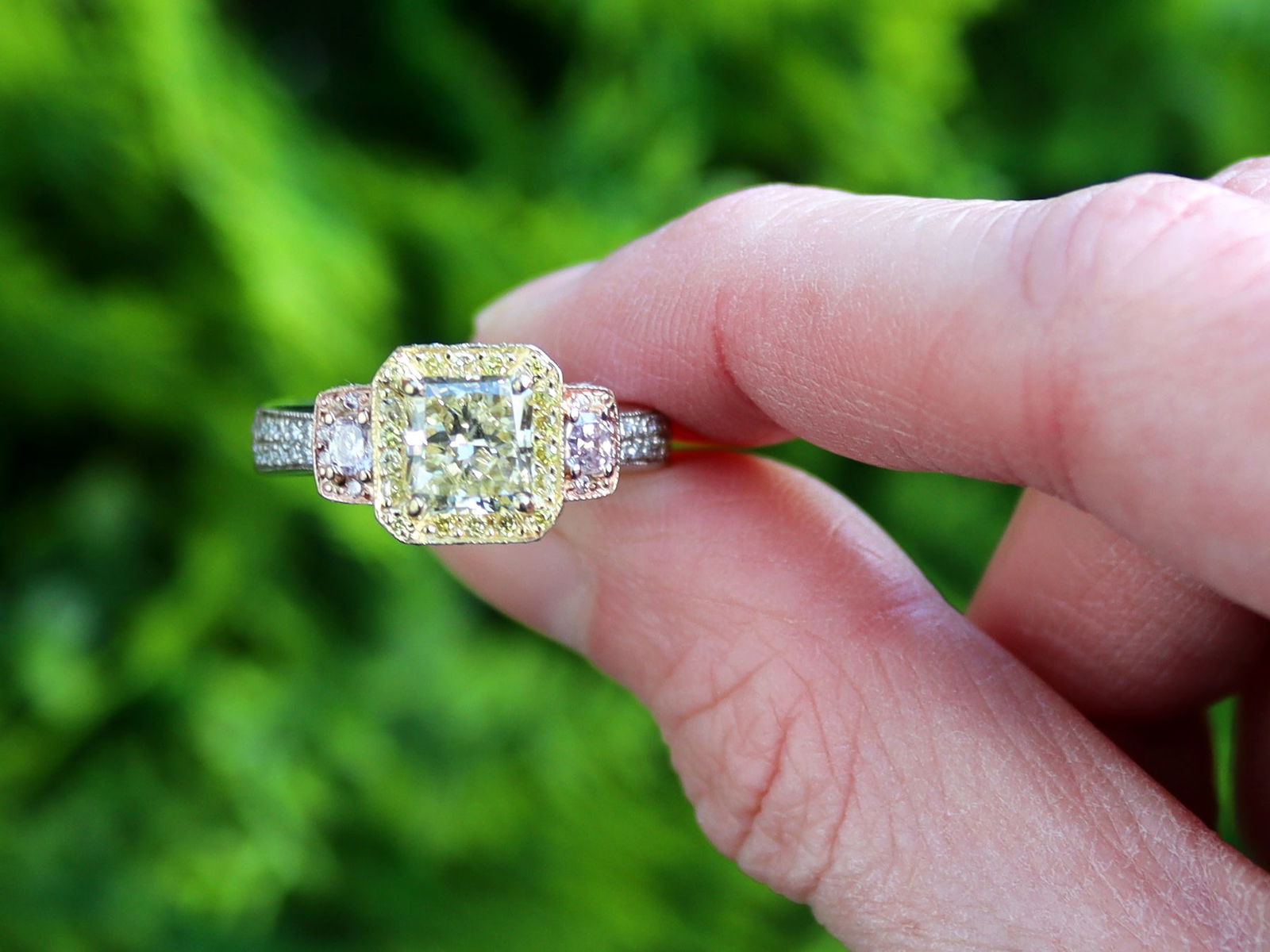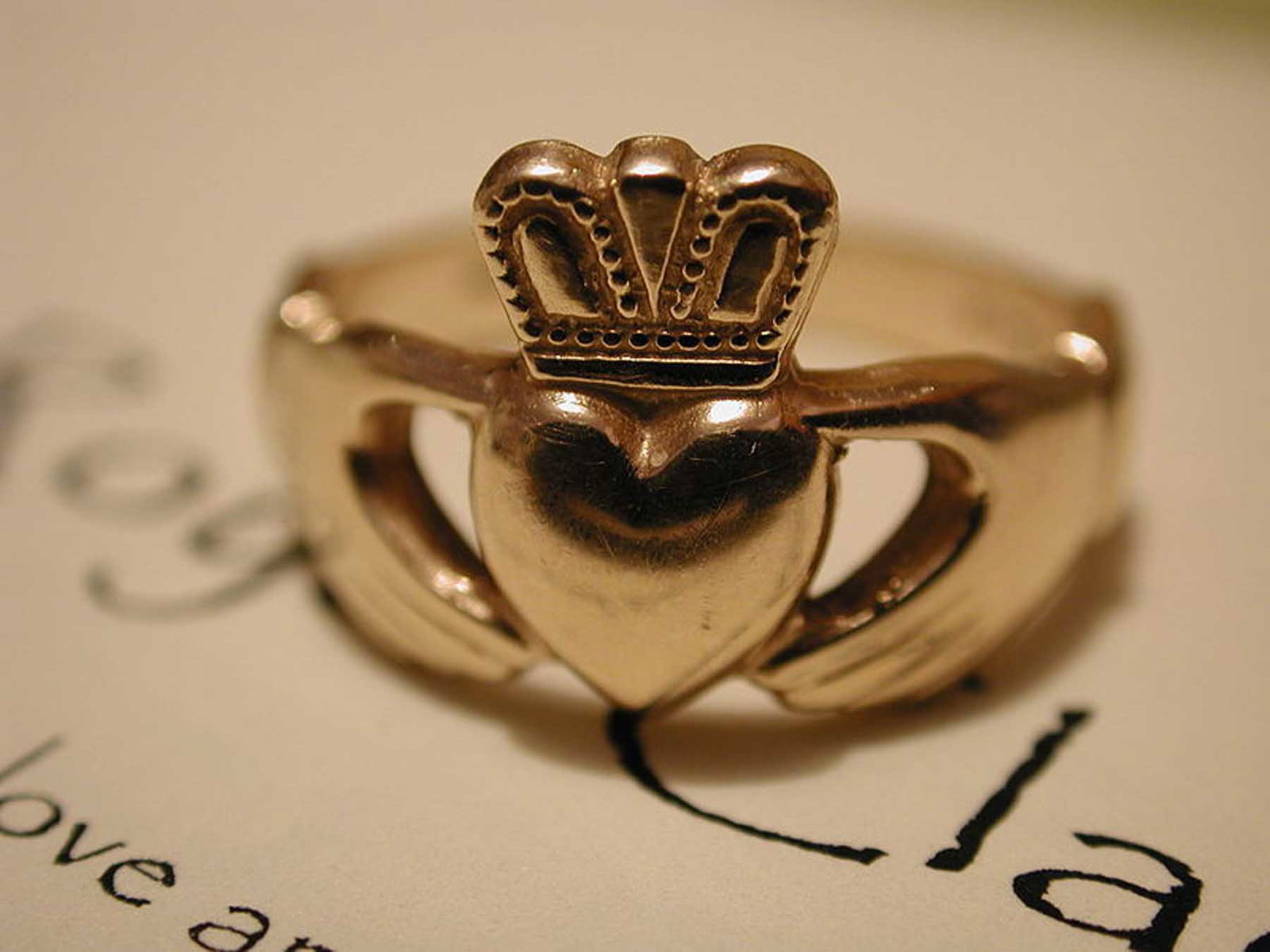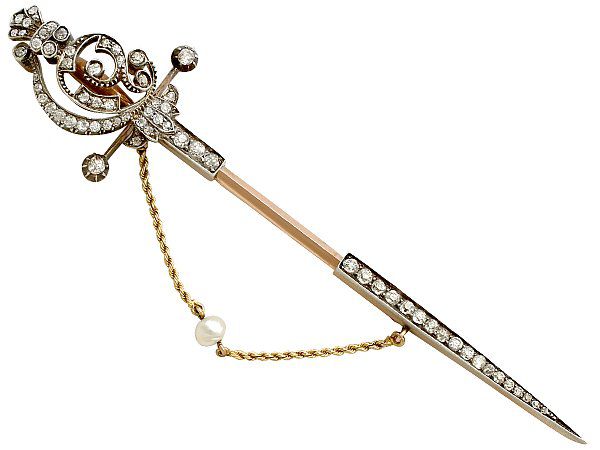In jewellery, a cameo is a portrait. Cameos are made from carved stone, heavily resembling Ancient Greek and Roman carvings. Common materials used for cameo jewellery are onyx, sardonyx, hardstone, shell, and agate. The carving is done in layers, with a white layer depicting the portrait protruding from the background. It is possible to have jewellery with engraved portraits that are sunken into the stone. These are called intaglios. Cameo jewellery is more common and usually more valuable as well. Today, we’re taking a look at what makes a valuable cameo.
The History of Cameo Jewellery
The name cameo refers to the carving process rather than the featured portrait. Cameos have existed since at least the Sumerian period, roughly 3100 BC. While the intaglio had a practical function as a seal, cameos were purely decorative. The Ancient Greeks made their cameo jewellery out of carved quartz, creating more colourful portraits than later examples. Ancient Romans used the cameo style to portray mythological scenes in their Roman jewellery.
The interest in classical studies that arose during the Renaissance period led to a revival of the cameo style. Cameos were made to commemorate significant events or people. In the 1500s, for example, Queen Elizabeth was a popular subject for cameo jewellery.
A similar repetition of interest in Ancient Rome and Ancient Greece occurred in the 19th century. Cameo jewellery was immensely popular in the Victorian era. Cameo portraits are among the most common extant cameo pieces from this era. Victorians and Edwardians wore cameos as accents on brooches, bracelets, and pendants. With the expansion of the British Empire, new shell varieties were discovered across much of the Caribbean that were popularly used for cameos. Read our cameo brooch history page to learn more about these beautiful jewellery pieces.
These unique pieces of jewellery were once a form souvenir, with travellers bringing carved cameo shells home for their loved ones to marvel over. Today, they are very popular collectables among jewellery lovers across the world. We can all agree that they’re beautiful and mesmerising, but what makes one more valuable than another?
The Most Valuable Cameos
Arguably the most valuable cameo today is Princess Lobanov-Rostovsky’s emerald cameo. Discovered in a vault in Russia, this piece is dated to the late 1800s. It features a roughly 120-carat emerald expertly carved into a bust cameo in high relief. The fact that emerald was the material used for this cameo is extremely rare. The sheer size of the emerald is also incredibly impressive. This is the type of jewellery piece that collectors would fight tooth and nail to get their hands on in an auction house.
Beyond this specific example, there are other features that impact a cameo’s value. Firstly, you need to closely examine the carving itself. Some cameos can crack with age or damage, so establishing the quality of the cameo is essential. Next, the details of the portrait add significant value.
Look for soft lines with fine features like semi-transparent veils, curling hair, and facial features like eyebrows. These delicate details take real mastery to perfect, and any cameo showing this perfection will fetch a pretty penny. Less valuable cameos have hard lines and edges, with ill-defined features.
Lastly, the subject itself can have a massive impact on the value of a cameo. While busts are some of the most popular designs, they aren’t top of the list for desired features. Cameos depicting scenes are typically more expensive than those with just a single portrait as the subject. The more detailed the environment, the more valuable the piece. A specific motif called ‘Rebecca at the Well’ was very popular in the Victorian era. These cameos feature a female figure, a cottage of some kind, and a well, often with trees as an added element. Antique cameo brooches or pendants with these scenes are among the most valuable around.
If you already have some cameo jewellery in your jewellery box, you already know how their beauty is entrancing. If you haven’t had the good fortune to see some stunning cameos up close and in-person, however, seize any opportunity you get. These amazing pieces of jewellery demonstrate some of the finest craftsmanship to have existed – you have to see them to believe their mystical essence.


